




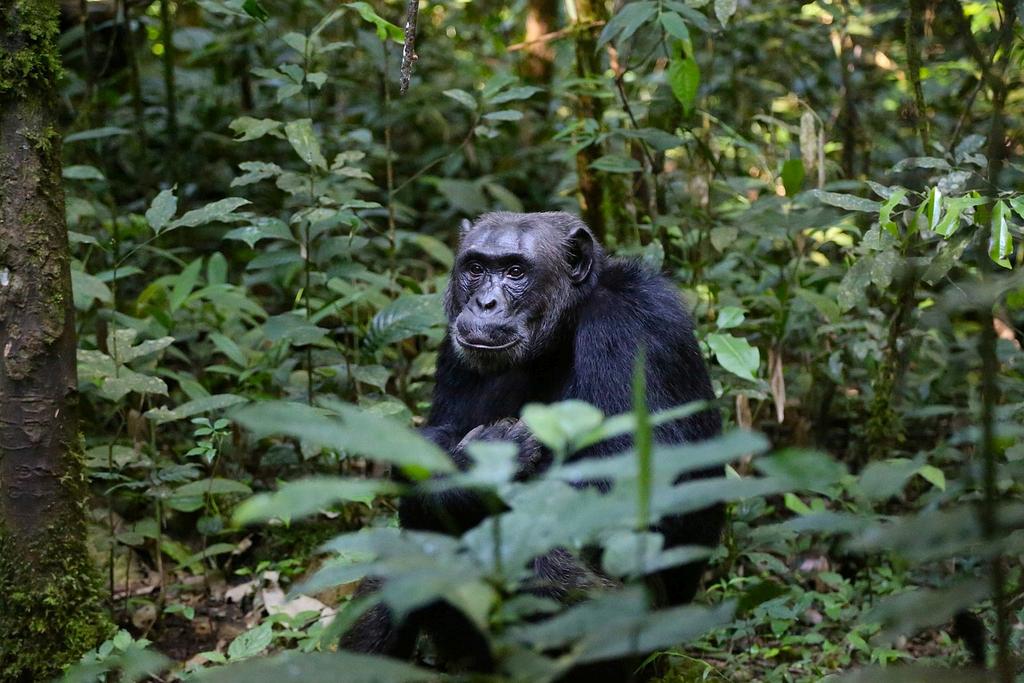
Our work stands at a pivotal moment as climate change and biodiversity loss threaten global stability With just a decade to act, we must change course to prevent disaster
In 2024, we developed a new three-year Strategic Plan to unite efforts in protecting biodiversity By partnering with grassroots conservation groups, Pelorus Foundation aims to make a meaningful impact, fostering a sustainable future for wildlife and wild places
Our strategy focuses on land and marine conservation, ecosystem restoration, protecting endangered species and combatting wildlife crime We also support local communities with environmental education, training, and resources for sustainable livelihoods
We aim to strengthen local organisations and support technology in conservation efforts We also amplify stories to inspire public support to ensure the sustainability and impact of conservation initiatives

We also aim to support 30 solutions for climate change and environmental challenges by 2030 By strengthening local organisations and inspiring more people to contribute, we strive to ensure the long-term sustainability of conservation efforts
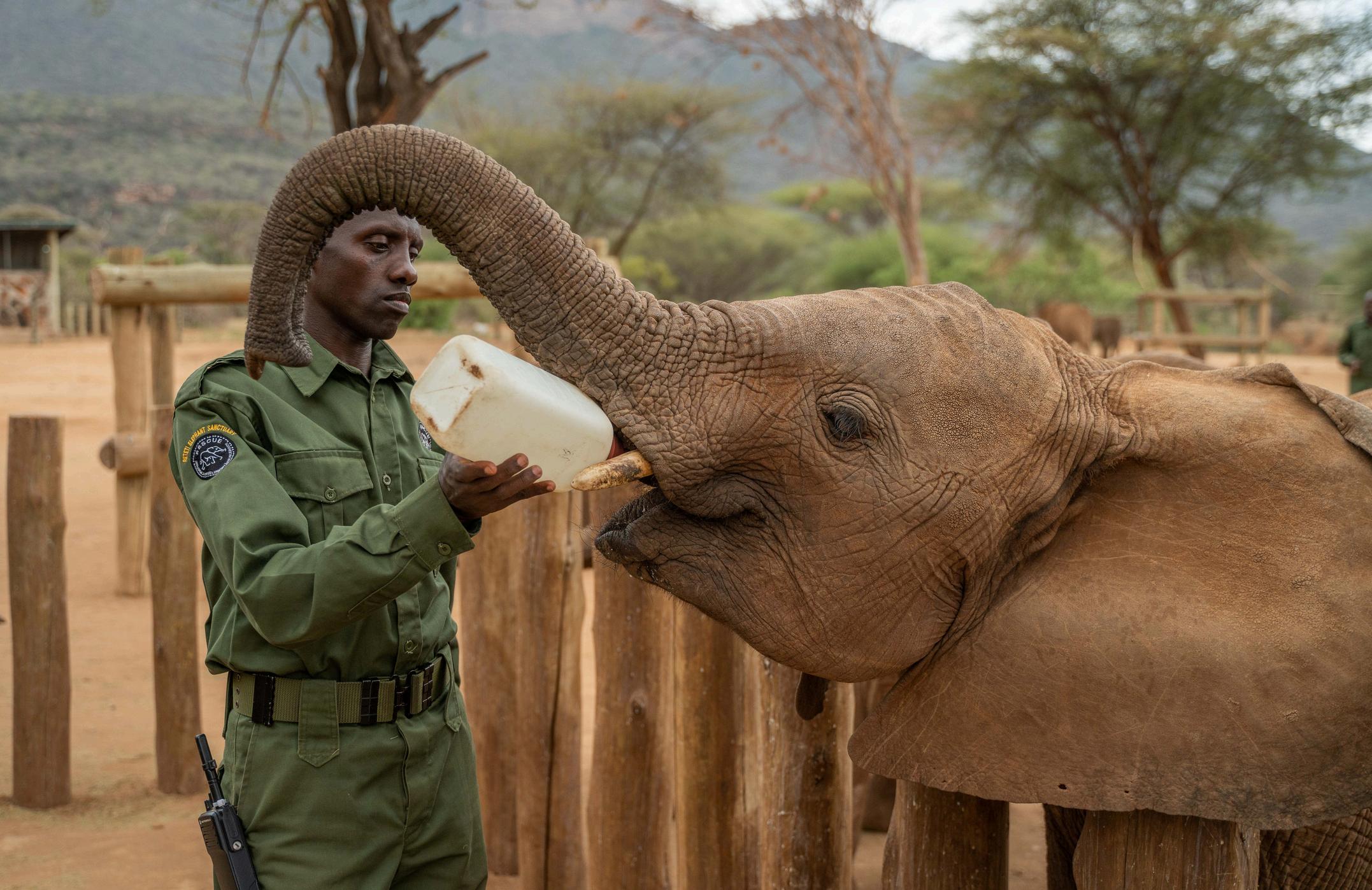
This year, we have focused on individuals and communities at the forefront of climate and conservation efforts. We've celebrated those working tirelessly to protect nature, championed innovative solutions challenging traditional methods, and stood as a catalyst for bold action against the climate crisis whenever possible
Fuelled by a shared commitment to change, we strive to amplify this momentum, support its leaders, and inspire our network to take action. As our community grows, we remain steadfast in our belief that collective effort can drive meaningful impact.
10
Projects funded
3
New project partners
£27,414
10 Invested in Project Partners
Countries supported
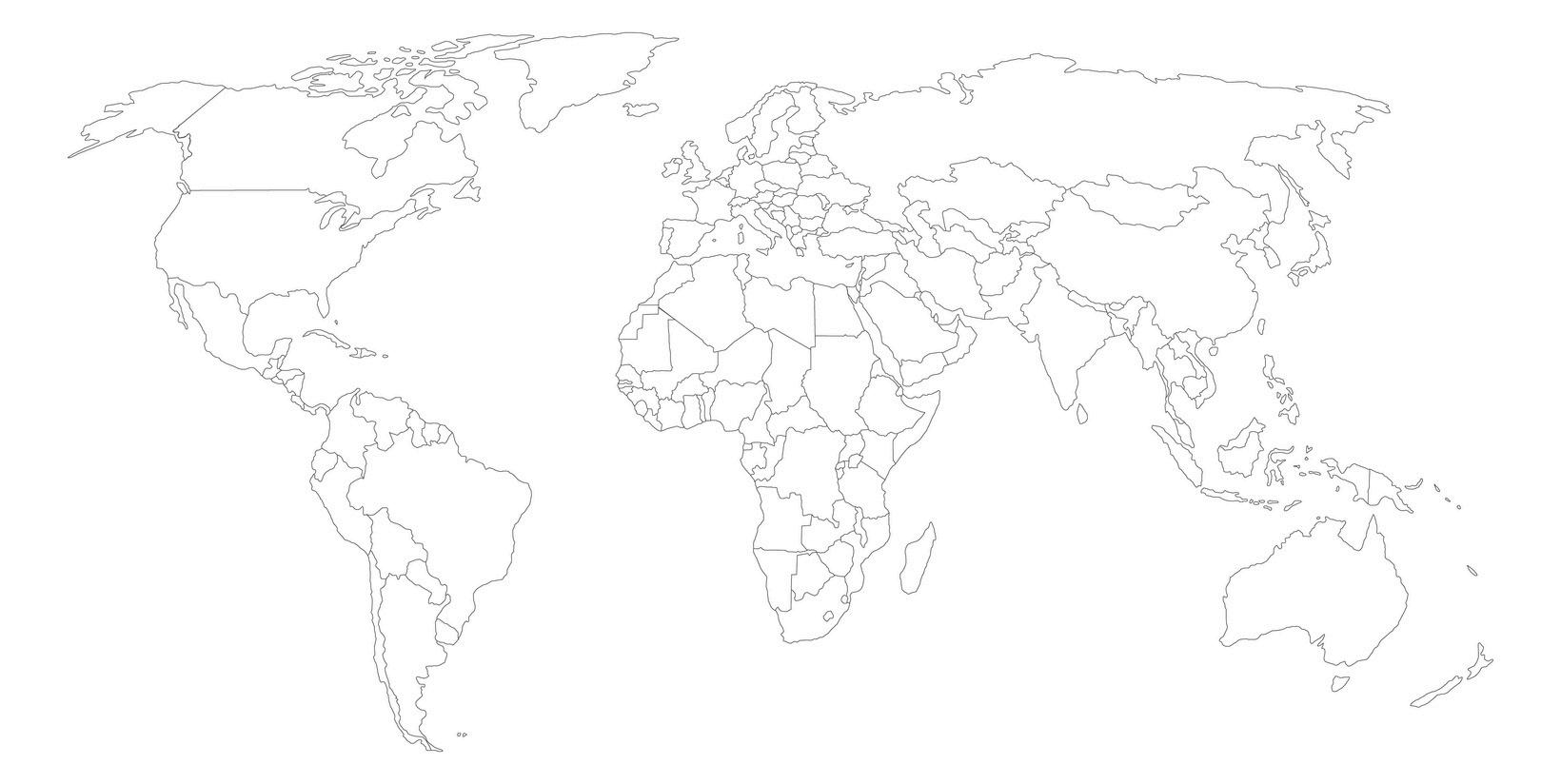
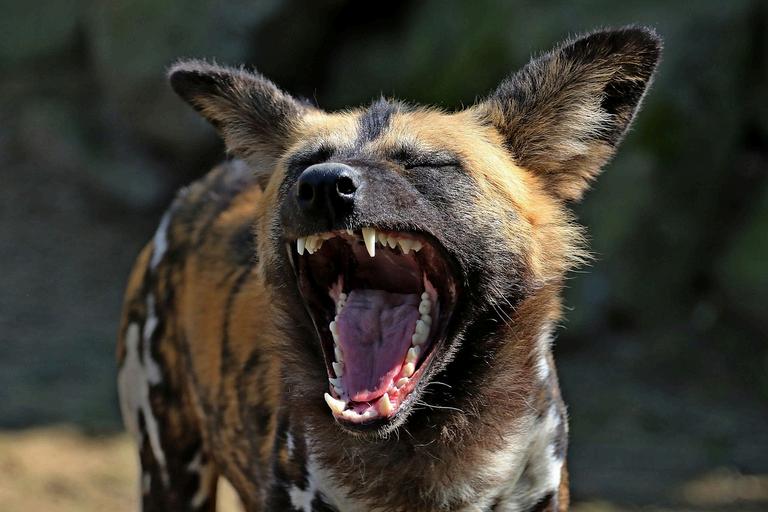
Our local partner in Botswana, Wild Entrust, is a dynamic organisation dedicated to the sustainable management of human-wildlife conflict, particularly with predators like African wild dogs
With 15 years of laboratory and field experience, Wild Entrust focuses on logistics, vehicle operations, and camera traps. Their research into human-predator coexistence has led to one of Botswana’s most extensive species population databases This is now crucial to the study of scent marking and to understanding animal communication through chemistry, with insights into boundary creation by African wild dogs
The Bioboundary Project is their pioneering method for reducing human-wildlife conflicts It involves the use of chemical repellents that mimic territorial markings of large predators to deter them from entering areas with livestock, offering a sustainable solution to balance conservation and the needs of the community
Our local project partner in Botswana leverages nature-based solutions so animals and humans can coexist better.
This project was made possible with thanks to a client of our corporate benefactor, Pelorus. Funds helped to develop new research and testing of natural plantbased repellents as elephant deterrents, to help protect crops and infrastructure With 80% of its 130,000 elephants sharing space with people, Botswana is the ideal place to test new elephant deterrents
These tests are already outperforming traditional methods, such as chili barriers and the use of bees, which are inactive at night and therefore ineffective at preventing night-time crop raids This further enhances co-existence with local communities
“As the evidence builds, there is no escaping the conclusion that [ ] we can develop deterrents based on chemical signals to protect both predators and livestock"
Dr Peter Apps, Director of Bioboundary Research,

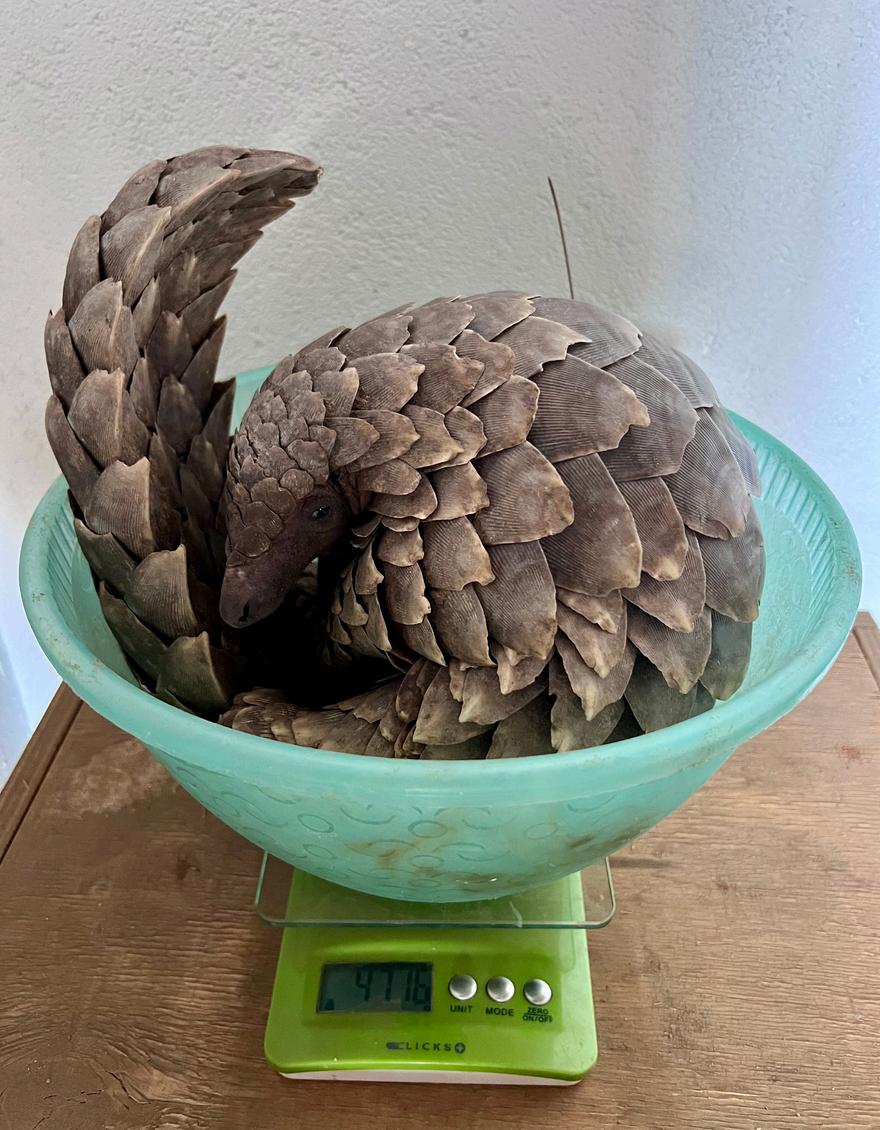
Pelorus Foundation has partnered with Namibian NGO, Pangolin Conservation and Research Foundation (PCRF), which engages local communities to protect pangolins This critically endangered species is the world’s most trafficked mammal due to high demand for their scales and body parts.
PCRF’s community conservation approach in the Nyae Nyae Conservancy now collaborates with 20+ villages. After hitting milestones like the establishment of a research camp, they have greatly increased collaboration with local communities and governments This progress has been essential for their “soft release” approach, which addresses the post-release monitoring challenges of pangolins rescued from wildlife trade Thanks to this, PCRF is creating one of the first comprehensive conservation-based research databases on pangolins
Likewise, this growth enables the employment of San pangolin guardians, to help increase local livelihood opportunities and community guardianship of pangolins
We are pleased to share the latest developments from our local project partner, which is dedicated to rescuing and rehabilitating pangolins in Namibia.
You helped to facilitate a move into an office space, with accommodation enabling PCRF to recruit more student interns who aid and develop their work in the Nyae Nyae Conservancy You have also helped raise funds for vital veterinary support into 2025
Thanks to help from people like you, PCRF has rescued 35 pangolins in 2024. Through our ongoing collaboration with PCRF, Pelorus Foundation continues to enhance the operational capacity and financial safety net which ensures that pangolins survive and thrive through this conservation effort
“Even when pangolins are intercepted from the wildlife trade, their death rate following is extraordinarily high Every bit of pangolin research informs and evolves ongoing pangolin conservation, meaning we ’ re one step closer to bringing pangolins back from the brink of extinction ”
Kelsey Prediger, Founder, PCRF
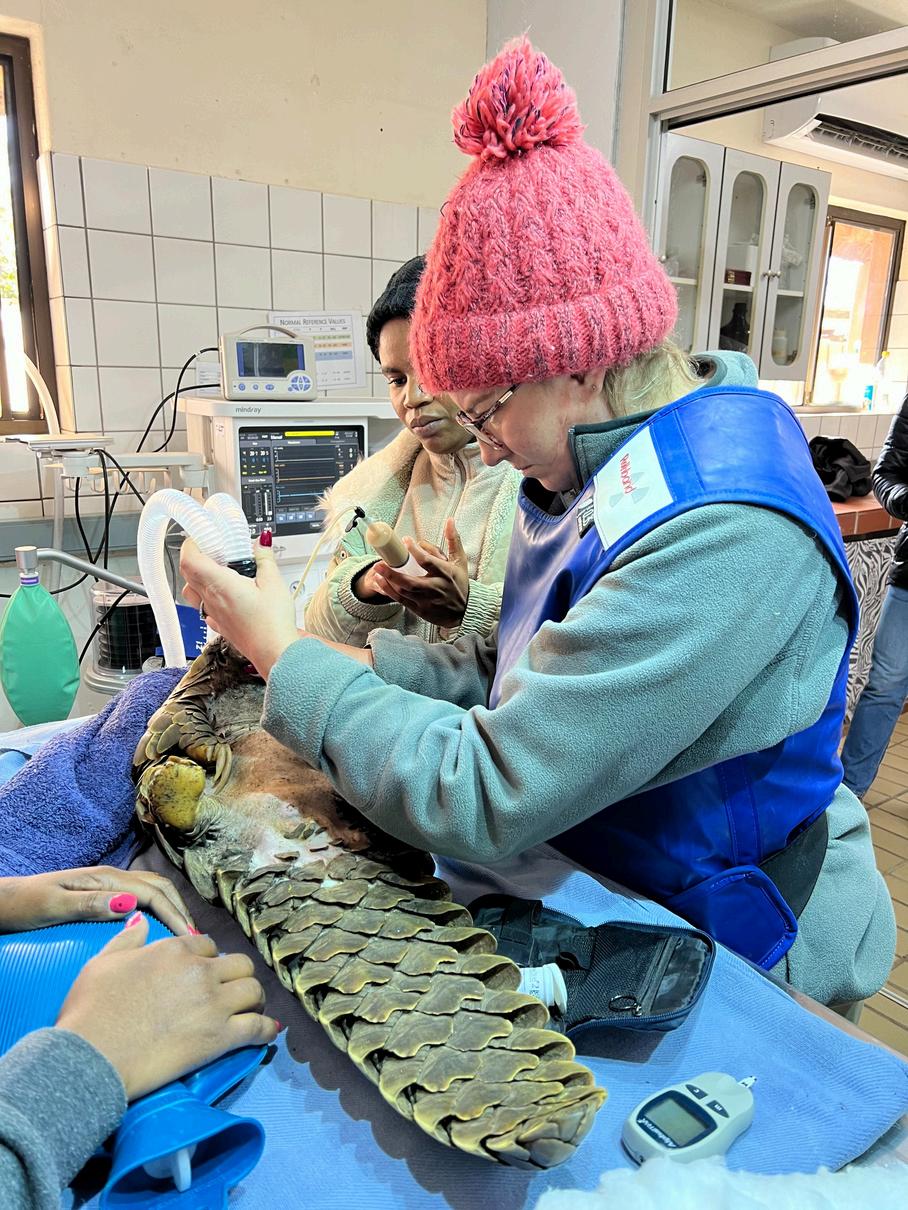
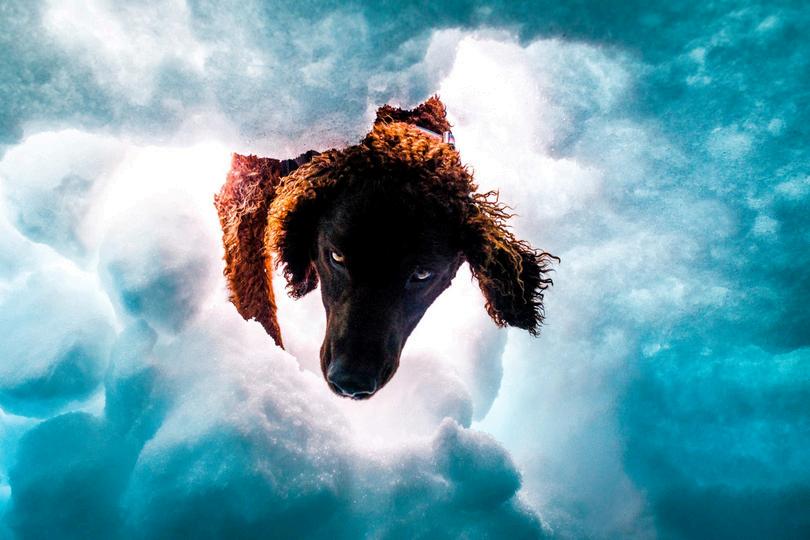
The majestic mountains on North and South Island boast diverse ecosystems; home to a variety of flora and fauna, including the vulnerable kiwi bird, the nationally endangered kea parrot, and rare New Zealand Edelweiss However, the allure of these landscapes is accompanied by the threat of avalanches.
To help minimise loss of life, Search and Rescue Dogs Avalanche, (SARDA) operates as a specialist avalanche dog rescue service, fully staffed by volunteers SARDA also holds annual training sessions to ensure that both dogs and handlers maintain their rescue skills at the highest level of excellence
Avalanche rescue dogs are an essential part of emergency response teams With their incredible speed, the dogs can locate buried victims in a fraction of the time it would take human rescuers Training the handlers and their life-saving dogs is a long and intensive process
In New Zealand, our local project partner, is training specialist teams and their dog units to become proficient at conducting avalanche rescue operations
This complexity took a new importance during early winter in 2024, when SARDA had urgent funding needs Thanks to a client from our corporate benefactor, Pelorus, a three-day South Island Dog Training Camp, was held at Ohau Lodge and ski field, was funded It featured 25 attendees, including handlers, trainers, and support staff, with 14 dogs participating.
The practical and theoretical training sessions, focused on improving dog response in avalanche scenarios
“Training camp effectiveness is evaluated through internal assessments and feedback from avalanche rescue operations High pass rates indicate training success, while debriefs and post-deployment offer insights into areas of strength and those needing improvement ”
Karyn Robertson, National Coordinator
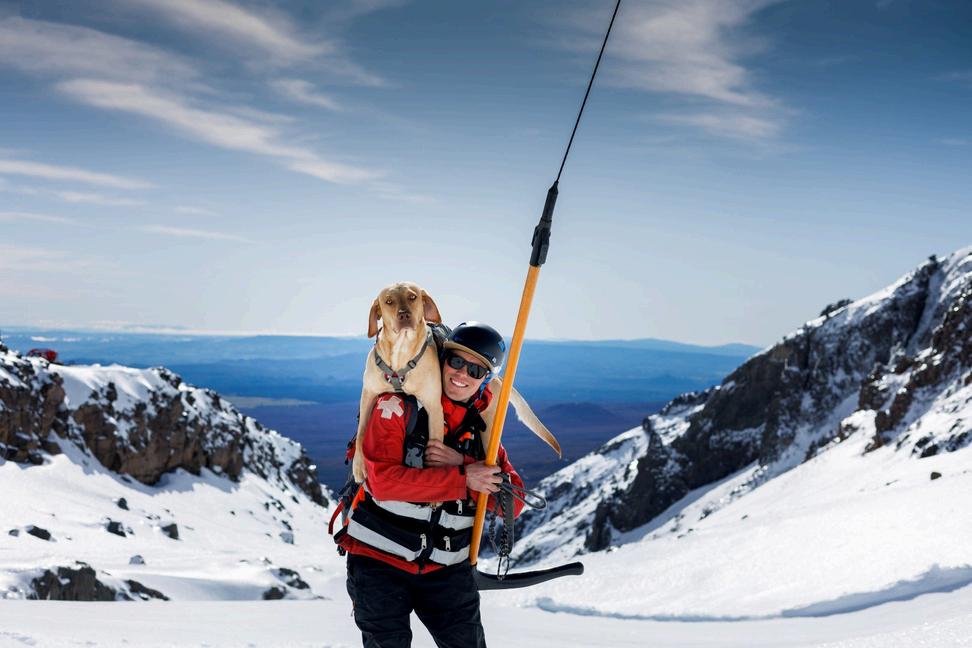
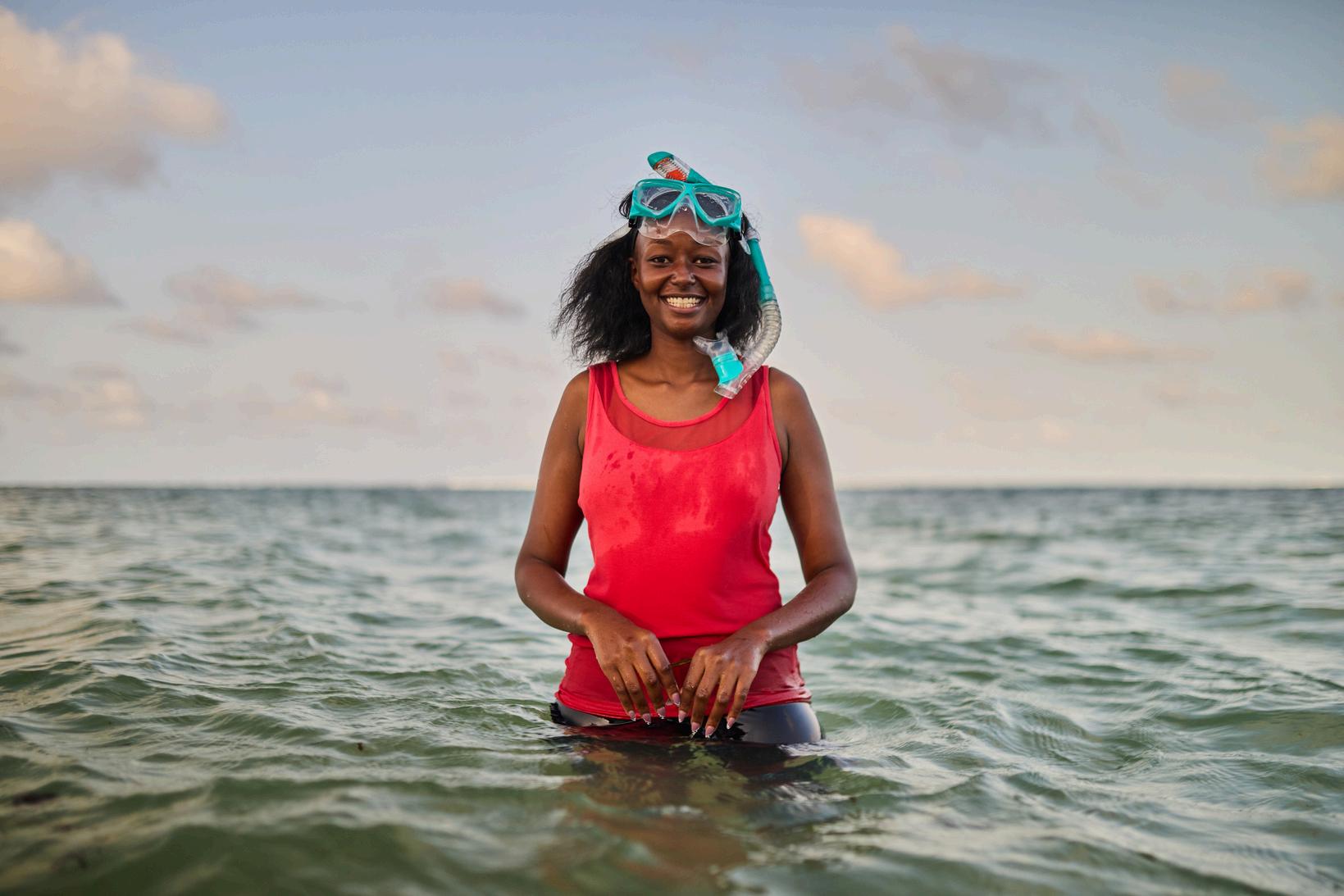
Our local, community-based partners in Kuruwitu, Kenya, Oceans Alive Trust continues supporting efforts to protect coastal coral reefs and develop scalable ocean conservation solutions
Oceans Alive has been creating networks to catalyse and share coastal collaborative management initiatives with communities, relevant stakeholders, and partners. Together with coastal communities, they’re sharing sustainable solutions, creating a ripple effect to improve local livelihoods
A key element of their work is the Coral Gardening Programme Despite severe coral bleaching over the last year, the MPA continues to thrive through the setbacks and care for healthy coral reefs that bring more fish to the coast, regenerating ocean life and sustaining livelihoods The positive effects of coral restoration are also compounded by new income-generating activities like plastic recycling or climate-smart kitchen gardens
Our local project partner in Kenya is harnessing the power of coastal communities to save coral reefs and become more climate resilient
Thanks to our supporters, a Citizen Science pilot research project was delivered, training local people to monitor fish, seagrass, and coral This has helped demonstrate that citizen science research can work locally, helping to empower the community to protect their marine environment
With assistance from a Kenya Fisheries expert, ten community members were trained in the pilot phase, uncovering key differences in fish populations and coral cover Oceans Alive supports ongoing reef restoration and encourages local ownership, filling gaps left by traditional conservation methods
“I have learned that monitoring is very important because it helps understand the changes in the ocean I learned to use equipment like the transect and was happy because the data I collected was very useful. I will show other how to conduct monitoring and understand its importance "
Mwalewa Nyale, Local fisherman and Kuruwitu Conservation & Welfare Association Member
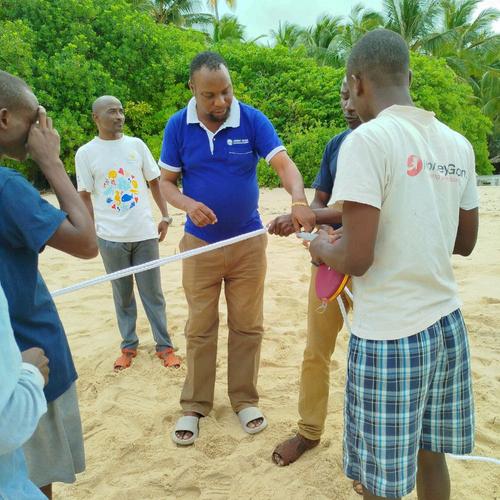
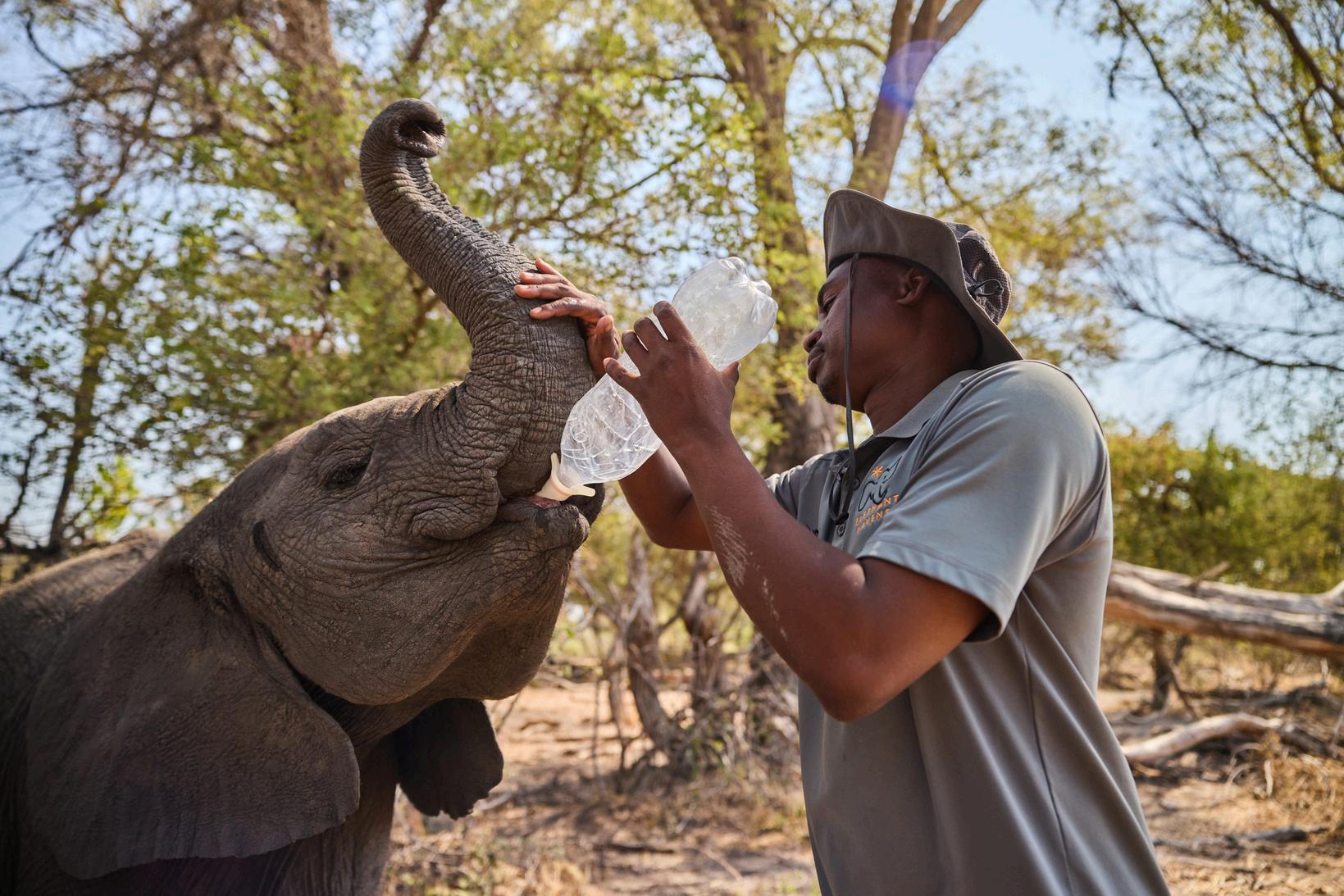
Elephant Havens continues its vital work at its 140-acre sanctuary along the Gomoti River, near the Okavango Delta The facility is designed to provide a safe, nurturing environment for orphaned elephants before their eventual reintegration into the wild, equipped with elephant enclosures, veterinary facilities, and educational spaces - all powered by solar energy.
In the past few months the sanctuary has welcomed several new orphans, including:
Bua, found roaming alone amongst community cattle and donkeys, he is a lively little trumpeter whose name means “Talker”
Makoba, a six-month-old calf who was rescued after surviving a leopard attack near Makoba Lagoon
Liyanti, who had an encounter with either a hyena or a crocodile who got her tail She is the third rescue with a missing tail
Hairy, found alive amongst many elephants that had died from starvation and dehydration
We are pleased to share the latest developments from our local project partner, Elephant Havens, which is committed to rescuing and rehabilitating orphaned elephants in Botswana.
With 22 elephant orphans in their care - double the number in 2023 - your support has been vital in providing milk, fodder, and new elephant handler uniforms Elephant Haven’s work to protect Botswana’s elephants is especially critical during this severe drought crisis
Thanks to your incredible support during last year ’ s Big Give Green Matched Fund, Elephant Havens now also has the new elephant weighing scales in the photo below. This vital equipment helps to track rescued baby elephant’s growth, health, and nutrition, ensuring they ge
“We had eight new arrivals in one month - that’s almost one new orphan reported and rescued every three-and-a-half days We believe that this influx is predominantly driven by drought This has had devastating consequences for all wildlife - but especially elephants.”
Scott Jackson, Co-Founder, Elephant Havens
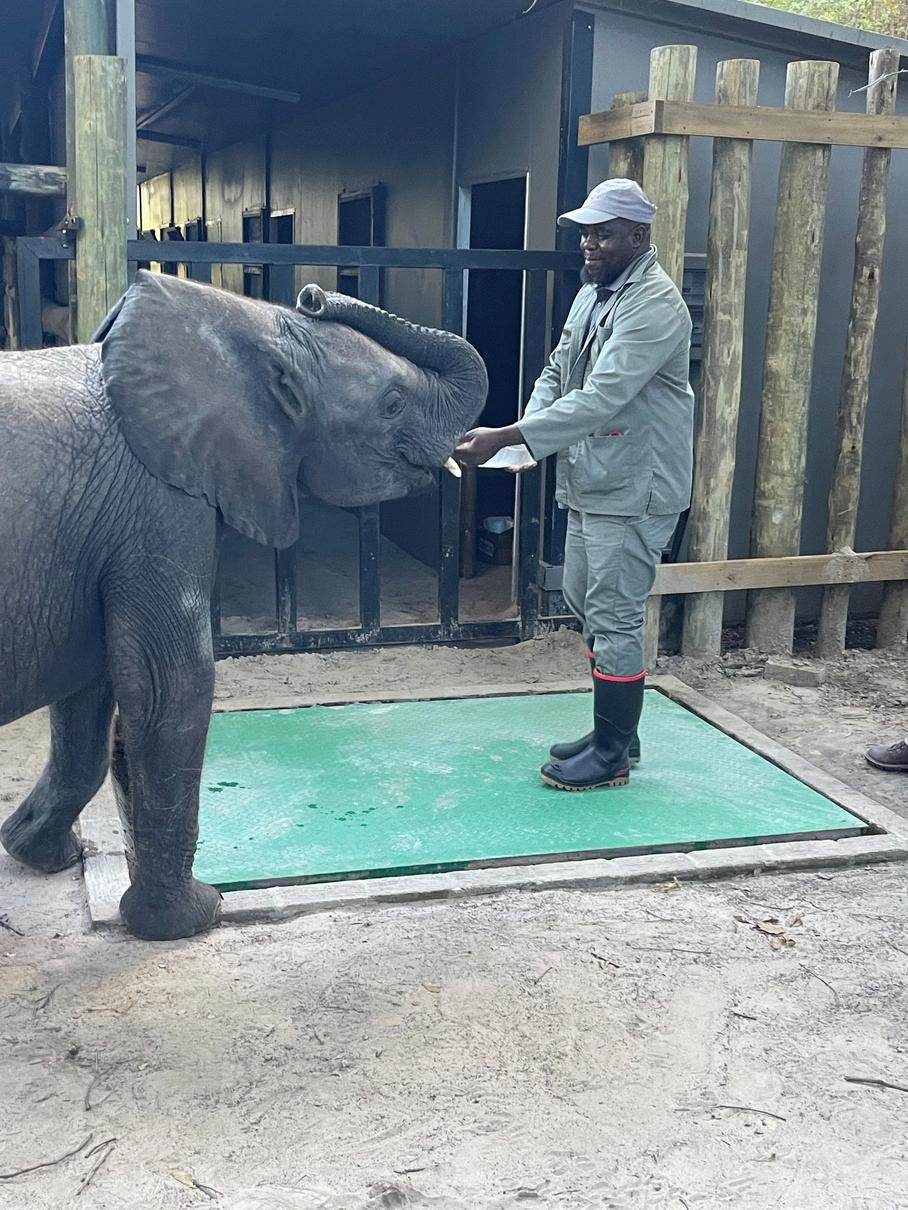
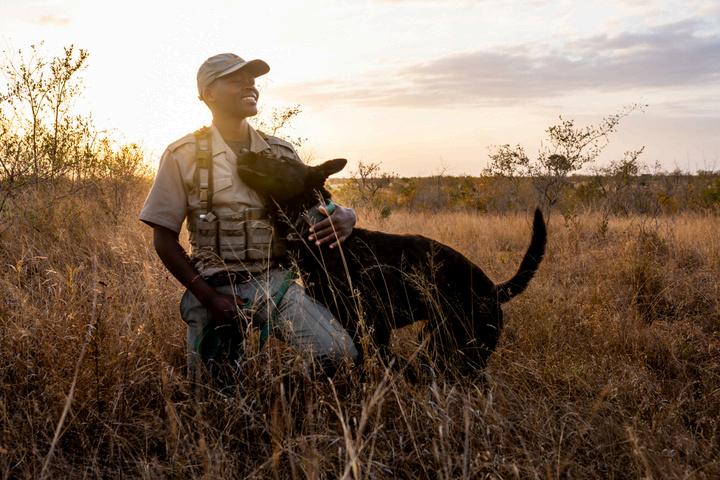
Canine (K9) units in Southern Africa boast an impressive success rate in detecting illicit wildlife products and revolutionise the fight against poaching through incredible tracking abilities When they are supported by advanced technology, the potential of the K9 units is doubled when it comes to protecting wildlife and ranger lives.
Our partner Singita Lowveld Trust is leading the way for dog involvement in wildlife crime prevention
Equipped with GPS and other tracking devices, K9 units blend traditional tracking skills with modern technology, positioning themselves at the forefront of wildlife crime prevention These K9 units have saved both animals and rangers, providing critical support in dangerous and remote areas
By enhancing early detection, exceptional tracking and scenting work, K9 units support rapid response and apprehension efforts
Our local South African project partner showcase the training of K9 units, combined with the latest technology to combat wildlife crime.
Your support helped purchase a Canon SX70 camera, GoPro Hero, and GoPro Chest Harness
This equipment is essential to enhance the training of the dogs and to carry out identification work like recognising injured rhinos from their ear notches that need to be sent to the vet panel.
Together, Singita Lowveld Trust and Pelorus Foundation are helping K9 units to continue to be key guardians of wildlife and wild places
“Lloyd is not just a work dog, he is my colleague, my partner, and my best friend ” Jason, Senior Dog Handler for the K9 unit
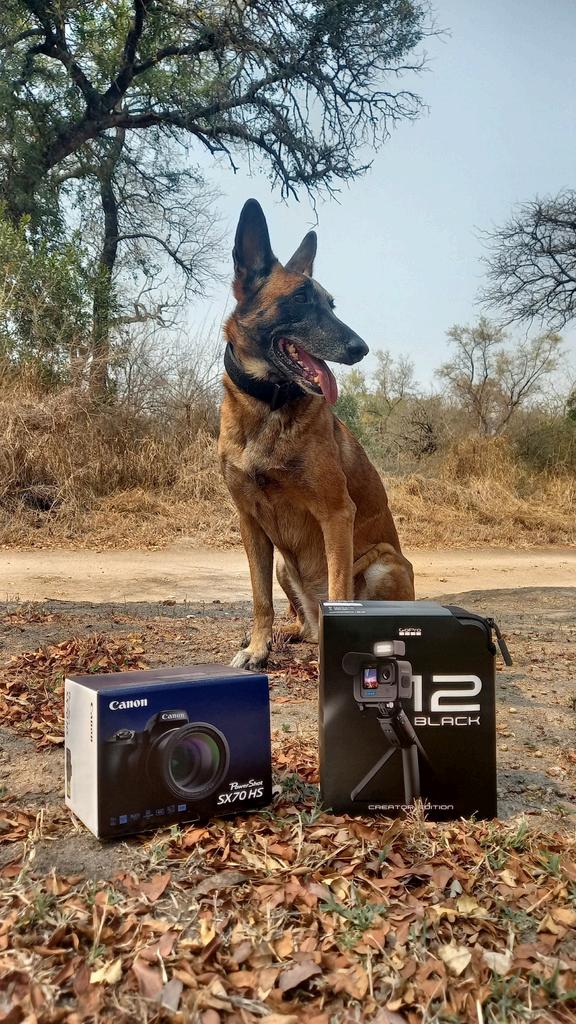
Driving carbon removal to address travel emissions consciously
Pelorus Foundation’s Climate Investment Fund takes a holistic approach to tackling travel emissions, investing only in a select group of carbon credits dedicated to genuine carbon removal from the atmosphere, rather than relying on traditional offsets
The fund supports innovative technologies and community-led initiatives including forest, blue, and soil carbon removal, as well as enhanced rock weathering and biochar
The nature-based solutions capture and store carbon through tree growth (forest carbon), coastal ecosystems like mangroves and seagrass (blue carbon), and healthier grasslands and soils that absorb more carbon (soil carbon)

Beyond its environmental impact, our Climate Investment Fund places a strong emphasis on social impact, supporting communities most affected by climate change, fostering a holistic approach to climate resilience and sustainability
In 2024, our Climate Investment Fund project partners made great strides in carbon sequestration, challenging the traditional carbon offsetting approach and implementing sustainable practices and ecosystem restoration for nature
Thanks to our corporate partners who enable their clients to rebalance their travel carbon emissions through our fund, we continue to drive real impacthelping to rebalance travel emissions and build a more sustainable future.
Contact us today to learn how your company and clients can rebalance their travel carbon emissions and help meet your Corporate Social Responsibility objectives. For more information, email: info@pelorusfoundation
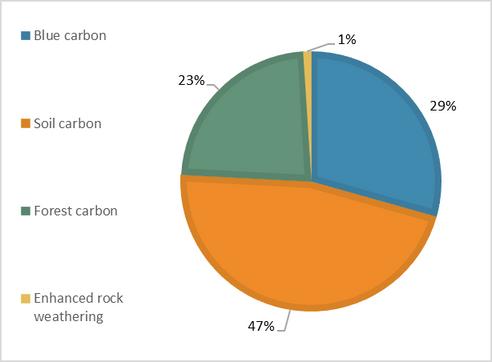
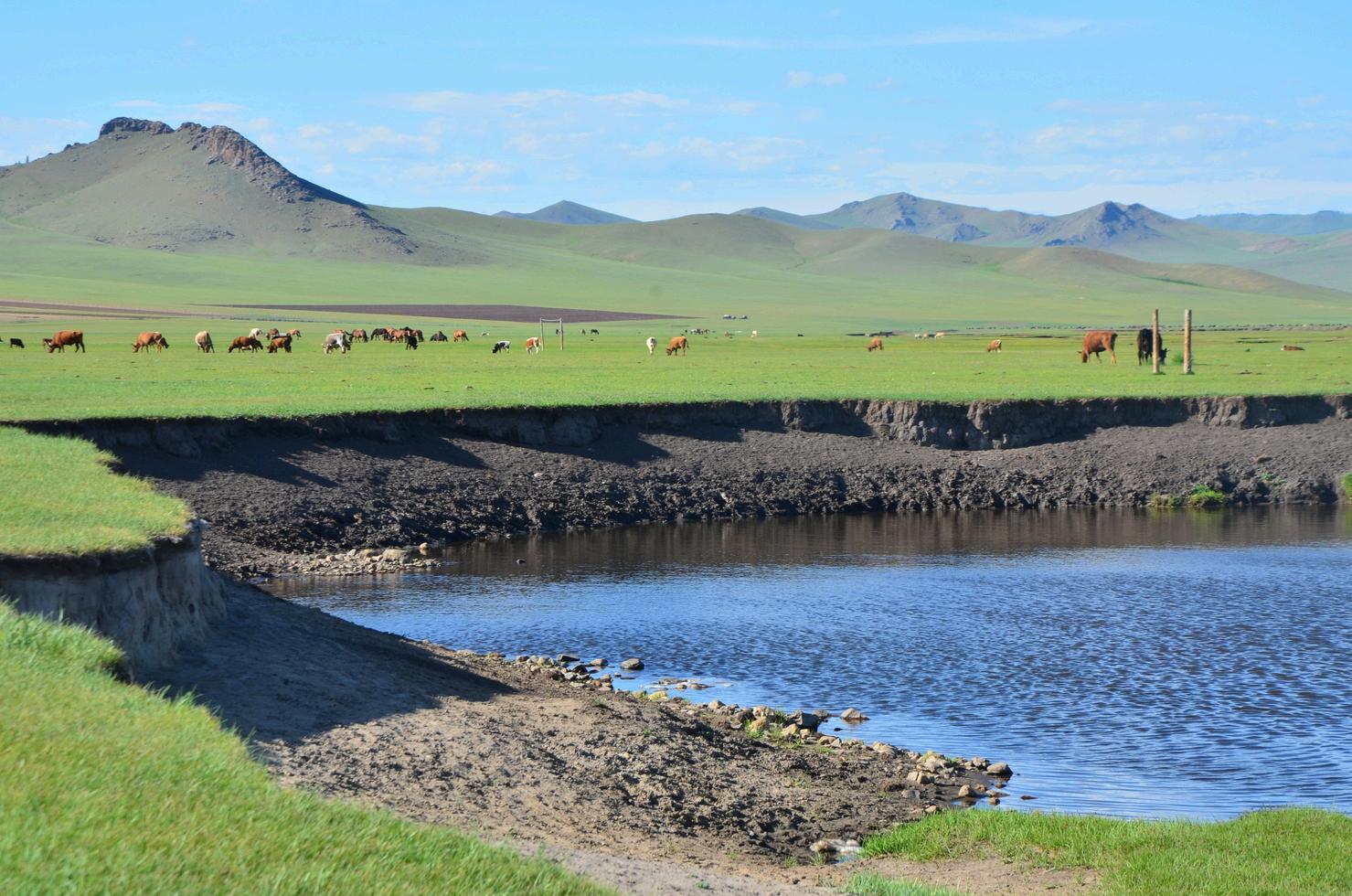
Soil carbon sequestration is a sustainable practice aimed at capturing and storing atmospheric carbon dioxide in the soil through techniques that contribute to carbon mitigation and soil health like grazing rotation. Our soil carbon project partner, Mongolian Society for Range Management (MSRM), has had a busy year working directly with nomadic communities
MSRM focuses on pasture management to increase soil health and its carbon capturing capacity, achieved by wildlife conservation and the improvement of herder’s livelihoods in Mongolia
In 2024, herder group participation has continued to grow, driving new initiatives in pasture management, livelihood enhancement, and conservation
Marking a 23% livestock reduction, MSRM is curbing overgrazing while also supporting nomadic families by creating new trade centres for income diversification in the forest and desert parts of Mongolia These sites facilitate new activities like tailor shops and leather processing, among other activities, benefitting each family from an average extra $100 income per month.
MSRM currently supports approximately 116 families in three regions Each of them with its own project community leader who manages the different community initiatives guided by the project director.
In this way, MSRM supports around 30 sheep and goat herding families in the Steppes, between 70-80 yak and cow herders in the forest lands, and around 15 camel and goat herding families in the Gobi Desert.
When it comes to wildlife conservation, families in the Gobi Desert take turns to monitor, plant, and clean regions of saxaul trees, increasing the size of the forested areas, which has brought with them the return of biodiversity to the area Contributions to the Climate Investment Fund continue to support this project
“In the face of rapidly advancing climate change, it is imperative to strategically plan mitigation measures and disseminate best practices Several initiatives have been launched to align livestock numbers with the carrying capacity of pastures, benefitting both environment and families,”
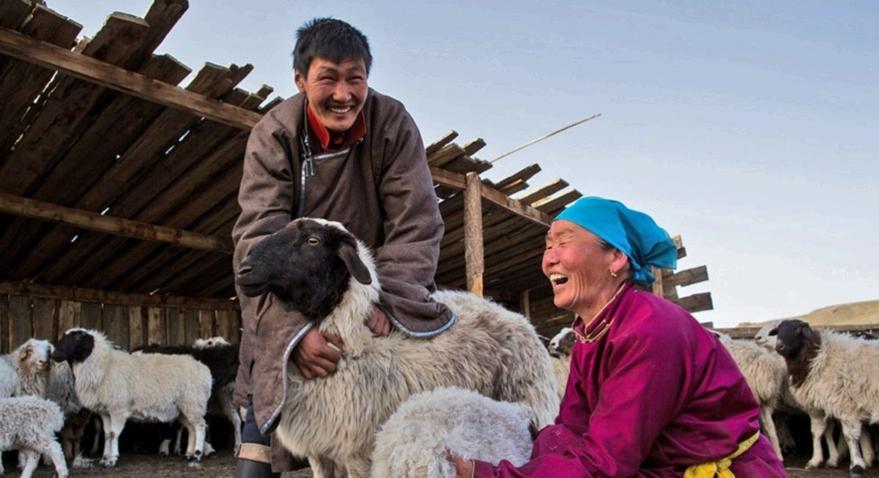
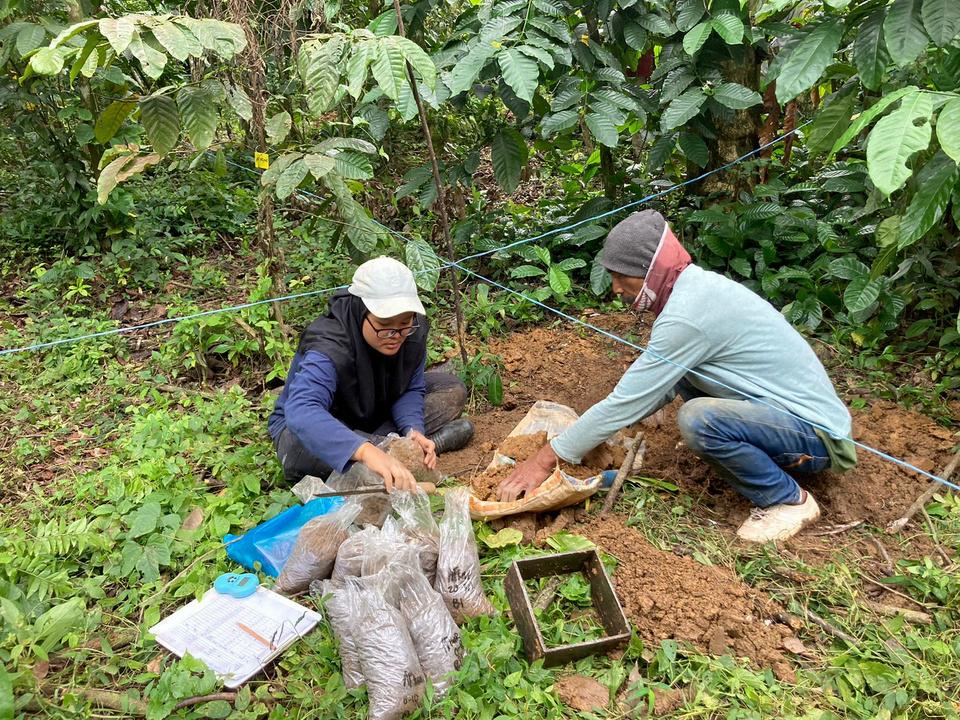
Our local, community-based partner CO2 Operate manages the Gula Gula Food Forest Program in West Sumatra, Indonesia.
During 2024, Gula Gula focused extensively on soil biodiversity, conducting a collaborative biodiversity impact study, in partnership with Brawijaya University’s Faculty of Soil, to increase wormery knowledge for farmers in agroforestry This has greatly reduced the reliance and negative impact on pesticides pushed on farmers by big companies, increasing independence and crop resilience
Gula Gula is now furthering their research into belowground biodiversity of older agroforests
Findings indicate that success is largely attributed to thriving earthworm populations, which are indicators of soil health Last year Gula Gula expanded their work to Lampung in South Sumatra, totalling 80 new hectares restored through agroforestry.
Despite lasting setbacks from Covid19 and frustrated expansion efforts due to the influence from the palm oil industry, Gula Gula has nevertheless learned a lot from the experience, such as not relying solely on horticulture as a focus for the farmers they collaborate with
In this line, locally grown coffee and Kopi Luwak are raising income for the good of the community Coffee has now become a great addition to their work which, at the same time is aiding in wildlife conservation
Civet cats are key to the production of Kopi Luwak, and positive changes of local attitudes to civet cats have also reduced the use of poison which had been killing other animals in addition to civet cats
2024 was a positive year, with almost over 80 new farmers eager to join the programme
“Our programme helps farmers to restore degraded lands into productive food forest areas through zero-tillage and low external input techniquesworking with nature rather than against nature ”
Paul Burgers, Founder at CO2Operate

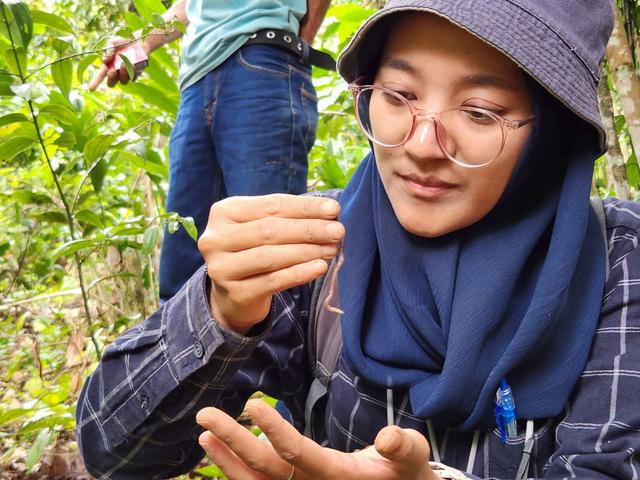
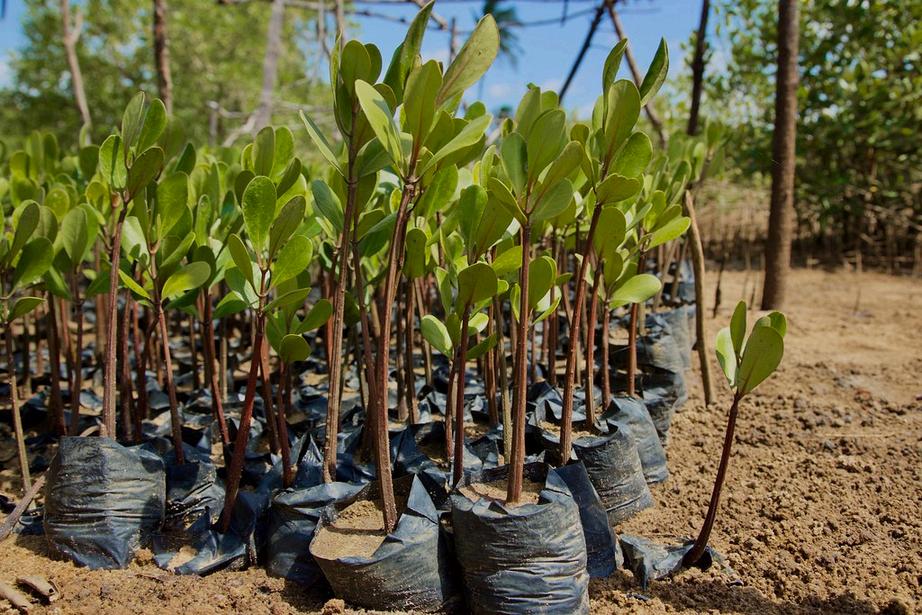

Agroforestry and mangrove reforestation are key strategies for sustainable development, blending the growth of trees and woody vegetation in agricultural regions. Mangroves capture more CO₂ than other trees, along shorelines to fortify biodiversity and soil health while supporting sustainable land use and protecting critical habitats
Our local Blue carbon partner, Association for Coastal Ecosystem Services (ACES), runs the Mikoko Pamoja (“Mangroves Together”, in Kiswahili) and the Vanga Blue Mangrove forest programmes in Kenya
In 2024, the Mikoko Pamoja project expanded their natural water infrastructure with new village water projects and launched a permaculture initiative to boost sustainable food production Trials of energy-efficient woodstoves have reduced reliance on mangrove for cooking while investments in community sports and a new surveillance tower have increased the community’s involvement in mangrove protection
Over the year, 117 new hectares of mangroves have been restored in the Mikoko Pamoja Gazi Bay area.
In 2024, Vanga Blue Forest worked with the local fishing community to conserve and protect both mangrove forests and seagrass meadows Over the year it has protected 460 hectares of mangroves across the villages for Vanga, Jimbo, and Kiwegu, supporting nearly 9,000 community members.
Both projects also spent the year channelling finance from carbon credits into projects to enhance local livelihoods, as well as constructing wells, educational facilities, and buying community land, improving farm access, building sea walls, and upgrading hospital equipment
Their innovative methods have now garnered the attention of major international organisations like the United Nations Environment Programme and the Global Environment Facility
“Mangroves can thrive where other trees wouldn’t, they have a higher capacity to absorb C02 between six to ten times more than terrestrial forests, and their roots buffer the coastline by reducing the strength of the waves coming from the ocean, mitigating the effects of climate change ”
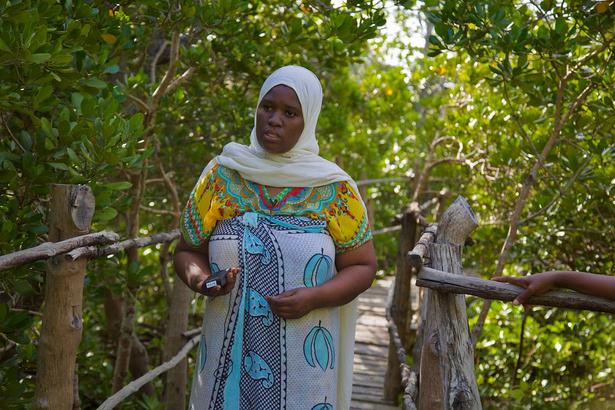

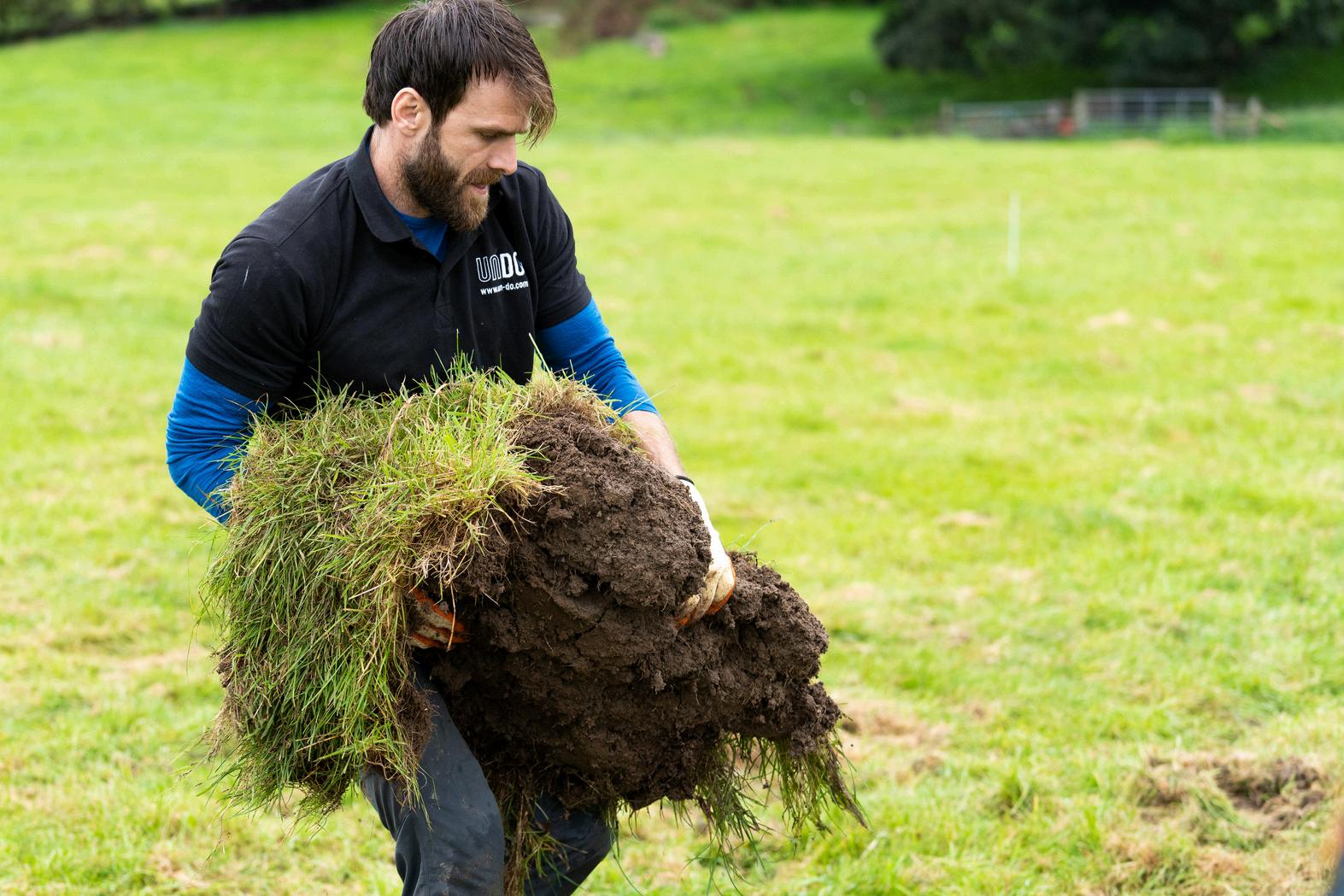
UNDO’s work involves enhanced rock weathering, an innovative geoengineering technique that involves crushing and spreading basalt rock powder, on land surfaces to accelerate the natural carbon dioxide absorption process, mitigating climate change
In 2024, following their expansion to Canada, over 111,000 tonnes of silicate rock was spread across 9,000 hectares of agricultural land, bringing the cumulative carbon capture to an estimated 63,136 tonnes and benefiting 340 farms
UNDO published a peer-reviewed study with Newcastle University demonstrating that ERW can stabilize soil pH and increase crop yields by an average of 15%, alongside its carbon-capture capabilities They have now partnered with Engineering UK, providing climate resources to 148 schools
Taking Root leads the Communitree programme in Nicaragua, which had a transformative year in 2024 by driving community-led reforestation and biodiversity initiatives They planted over 25,000 trees across 15 sites, sequestering nearly 5,000 tonnes of CO₂.
The Communitree programme work produces biochar, a carbon-rich material made by burning organic matter in low-oxygen conditions, used to improve soil health and sequester carbon dioxide.
Their efforts involved 800 local volunteers and delivered sustainable forestry training to 50 community leaders Through local schools and businesses, Communitree distributed 10,000 saplings and created green corridors that enhanced local biodiversity by 30% Their monitoring systems ensured an outstanding 95% survival rate for the newly planted tree saplings
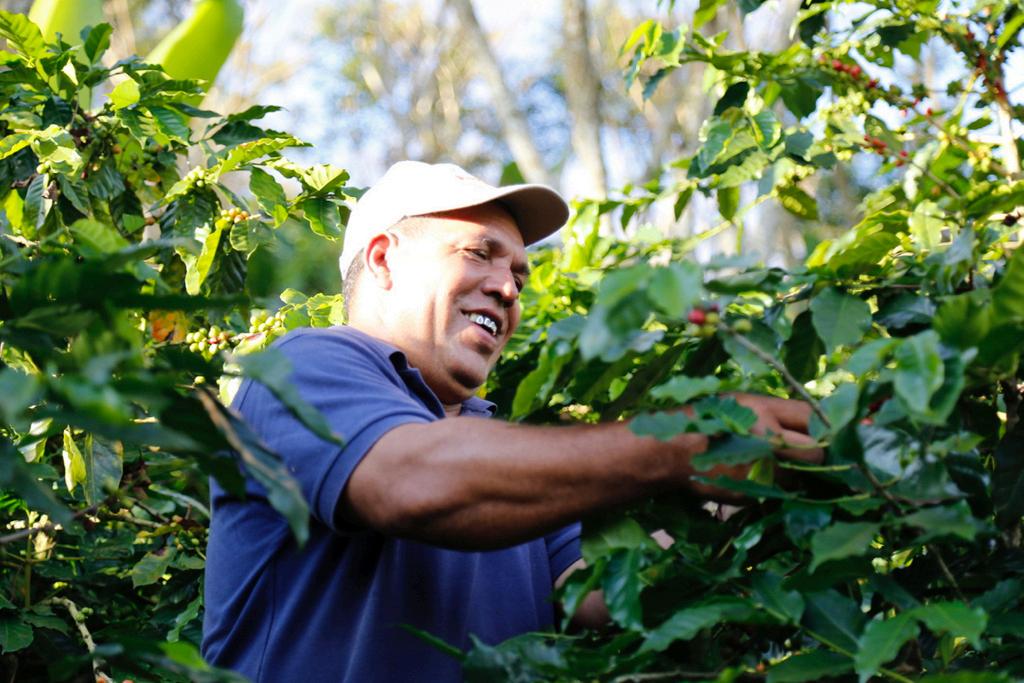

Thanks to the generous support of Cam provided a luxury VIP Glastonbury Anjajavy along with local suppliers, who c day trip to Madagascar, two incredib collectively raised £14,550
Pelorus generously hosted a Clay Shoot home of an elite training centre for Team support of Pelorus Foundation The e guests for a day filled with activities, del corporate networking while fundraisin conservation The event raised over £33,00
Thank you to all of the guests who took to support wildlife conservation, we welcome you to our next fundraising even
The impact of our work last year would not have been possible without the help of our supporters During the year, we were delighted to share the news that our main corporate benefactor, Pelorus continues to donate one percent of all their travel sales income to support our conservationworkinadditionto othersupport
Three Big Give initiatives raised funds to support our work with elephants, pangolins, and a new ranger project for 2025 – you helped raise £23,280 across all fundraisingcampaigns
Despite a recent back injury diagnosis, Pelorus CoFounder Jimmy completed the New York Marathon with an impressive time of 3:27:21, raising an amazing
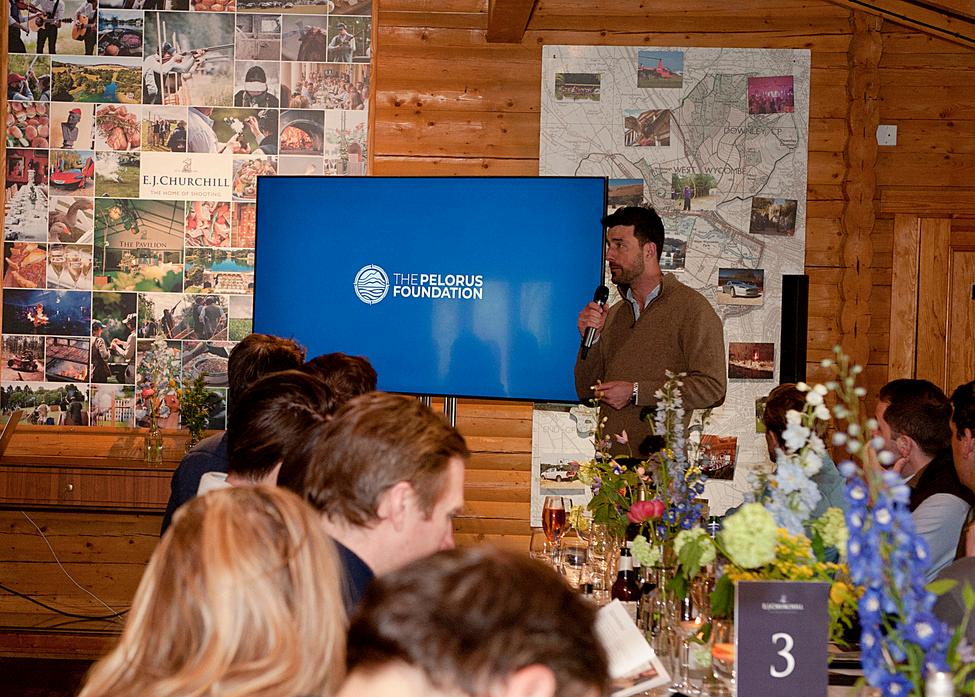
Can you run to support wildlife, host an event, or get your company involved to raise funds to support nature? Please contact us
critical in demonstrating our ability to protect, preserve and promote wildlife and wild places as well as our support of local communities and our efforts to tackle the carbon crisis through our Climate Investment Fund”
Geordie Mackay-Lewis, Founder and Chair of Trustees, Pelorus Foundation

